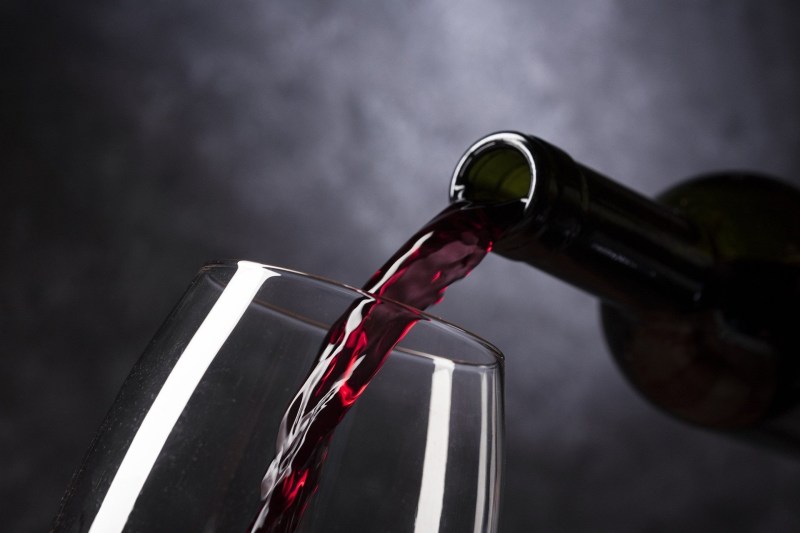
If you’re of a certain age, you probably remember the movie that ignited a firey hatred within the belly of every pretend wine lover — a pure, unadulterated contempt for Merlot. The 2004 movie Sideways featured a hilarious, somewhat disturbed Miles- brilliantly portrayed by the always spectacular Paul Giamatti- who passionately and humorously detested this particular varietal. While the movie is clever and enjoyable enough, the real effect it had was not on the cinematic world but that of wine.
Suddenly, everywhere, would-be-know-it-alls were jumping on the Merlot-hating bandwagon, proudly touting their pretended distaste for something they only heard about in a mediocre film. The results the movie had on Merlot sales were drastic. Winemakers began labeling 100% Merlot wines as “red blends” for fear of using the Merlot name — a tactic that is still being used today in some cases, nearly 20 years after the movie’s release. Well, we’re here to loudly and proudly declare our love for Merlot wine. Sideways be damned.
The genuine frustration of this unfounded detestation lies in the fact that Merlot is arguably the most diverse wine, ranging from mellow and fruity to dark and robust. It’s far more likely that a fair-weather wine fan would fall for a Merlot before another greedier grape, and it’s a shame that it’s developed the bad reputation it has.
Merlot is a fantastic choice for an introductory wine because of its typically mild and fruity notes. Merlot’s tannins are subtle, and acidity is low, making it highly drinkable and soft on the palate. Standard notes in Merlot include raspberry, cherry, cocoa, and violets.

What kind of wine is Merlot?
Despite its dip in popularity after Sideways, Merlot is still one of the world’s most-consumed wines. This is undoubtedly due to the wide range we mentioned before. Merlot is a red wine known for its soft texture and approachability. Its varied notes come from the fact that Merlot grapes can adapt to various climates and are among the easiest wine grapes to grow. Merlot is also a popular choice for adding further complexity to other cabernet sauvignon-based reds, so it is commonly blended with other wines in addition to being gorgeous in its own right.

Where does Merlot come from?
Merlot comes from the world’s second-most planted red wine grapes, and they grow all over the world, most famously in France and Napa Valley. While they thrive in warm climates, they work their magic in a variety of environments, from Bordeaux and Tuscany to Chile and California. Each location gifts the grapes their own signature set of flavor profiles and textures.

Is Merlot usually sweet?
Merlot is a fruitier wine and can, therefore, be considered sweet, but it isn’t classified as a sweet wine. It’s actually considered to be on the drier side due to its tannin levels. However, Merlot’s fruit-heavy flavor profile often gets it a sweet reputation. There are earthy notes within Merlot, such as vanilla, clove, and tobacco, but the main flavor profile tends to lean further toward fruit. It’s far from a dessert wine, though, containing very low levels of residual sugar.

Which is sweeter, Merlot or Cabernet?
Merlot is often compared to cabernet sauvignon — and most likely because they both originate from the same parent grape — Cabernet Franc. The two wines, however, are extremely different. While Merlot is fruit-forward and light, cabernet is earthy and savory, bold and robust. So, while neither wine is actually considered to be sweet, Merlot would be the sweeter of the two.

Does Merlot have a high alcohol content?
On the ABV scale, Merlot falls somewhere in the medium-high range. While its alcohol content is dependent on where the grapes are grown, the ABV range is typically between 13% and 14.5%. As with all wines, alcohol content tends to be higher when the grapes are grown in warmer climates. So, while a French Merlot may have a 13% ABV, a Napa Merlot could very well get much higher than that as far as alcohol content.

Is Merlot a fancy wine?
This is a commonly asked question, and the answer is – if you want it to be. With the exception, perhaps, of sparkling, there isn’t any one wine that’s better suited for more formal events than another. There are expensive wines of every varietal as well as more budget-friendly options. Of course, there are absolutely delicious bottles at every price point, too, so don’t let a lower price tag alone deter you from buying a bottle for your event.
Merlot is a great choice for a party, fancy or otherwise, because of its accessibility. Its tame and mild notes make it very sippable for cocktailing and easily pairable with a variety of cuisines.

Which foods pair best with Merlot?
Merlot drinks beautifully with a wide range of foods, from chicken and pork dishes to rich and creamy pasta and leaner red cuts of meat like filet mignon. Its low acid and slighter tannins balance tremendously well with just about anything but seafood or heavily fatty cuts of beef, whereas a more tannic wine is better for cutting through and blending with fats.
When creating a cheese or charcuterie board, gouda and goat cheeses pair perfectly with the fruitier notes of Merlot. More full-bodied Merlots are also exquisite with blue cheese.
When it comes to dessert, pair Merlot with dishes that aren’t tremendously sweet. The balance of Merlot with dark fruits or chocolate with a high cocoa percentage is absolutely delicious.



